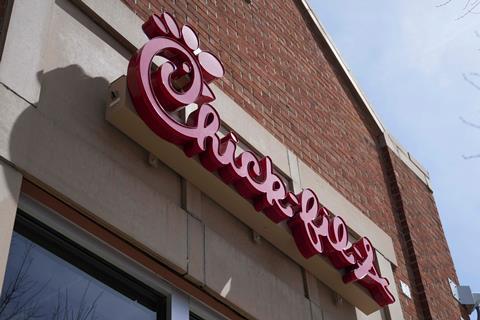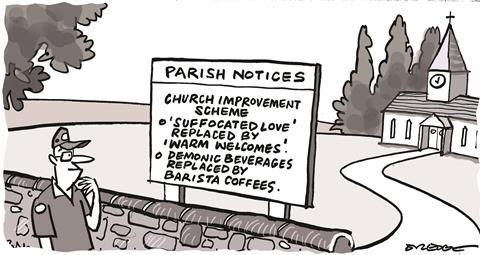The American fast food chain Chick-fil-A has consistently outsold its competitors. But it isn’t just the food that makes it successful, observes Jeff Lucas

The day of miracles is not yet past. Today, I experienced what felt like a sign and a wonder.
My experience of service in UK shops recently has been rather underwhelming. Attempting to buy some new shoes, I tried in vain to gain the attention of two assistants who were loudly discussing their ability to imbibe huge quantities of alcohol on Friday nights. While impressed by their camel-like capacity to consume and store liquid, my rather frantic waving at last caused them to pause. “Are you alright there?” quipped one of them, a greeting that is apparently standard practice in British shops these days. I wasn’t sure how to respond. Should I share a few recent minor health challenges in response? I replied that I was doing very well, thank you, but he was already back to his chat about booze.
My retail experience this morning was remarkably different, however. In an ironmonger on an industrial estate, you can buy every conceivable nut, bolt, handle, lock or hook. Waiting in the queue to be served, I was amazed that the affable chap behind the counter seemed to know the exact location of every item in the place.
Suddenly a man who looked like the owner appeared. “Are you still here?” he smiled. “I’m so sorry for the wait. We’ll be with you very soon. Can I offer you a tea or coffee in the meantime?”
A shroud of confusion settled over my mind. Had I stepped through a time portal and landed in a past era that enjoyed kinder, more personal service? I politely and gratefully declined the offer of refreshment. The episode ended with me being given a discount on my purchase, without even asking for one.

Why do I share this? It’s not, as some might suspect, an encouragement to churches everywhere to serve hot drinks on Sundays. Most already do that, although, sadly, sometimes the coffee is so unpalatable it has apparently been ground by Satan himself. Rather it’s the power of welcome that I’d like to highlight.
A warm welcome is wonderful and, in business, can be profitable. In America, one fast-food chain, Chick-fil-A, has consistently outsold its competitors for decades, despite only opening six days a week. They close on Sundays to allow their staff time for family, worship and rest. Whenever I mention the brand, people tell me that they love it – but nobody ever talks about the food, even though it’s great. The positive comments are always focused on the welcoming culture the company has created.
Jesus spent much of his time eating meals with the wrong crowd, much to the disdain of the religious barons who dogged his steps. But the New Testament reveals that not only did Jesus share tables with all sorts of people, but he welcomed them (Luke 15:1). Remarkably, the profoundly unholy felt seen and received by the holiest of them all.
I’ve written before about the welcome I received the night I braved a church service and decided to follow Jesus. People literally lined up to shake my hand and give me a Christian hug (three pats on the shoulder, hug to the left). I can’t remember a single word of the sermon, but I’ll never forget the kindness and warmth I was shown. I was home.
So, when visitors summon up the courage to enter our churches, let’s not bomb them with suffocating love that makes them run for cover, but simply show them a warm welcome. It takes more than a grinning gaggle of ushers and greeters. A welcoming culture as well as a welcome rota is required. It’s a choice we can all embrace, and it won’t impact the budget. Unless of course, we improve on that demonic coffee…






































No comments yet